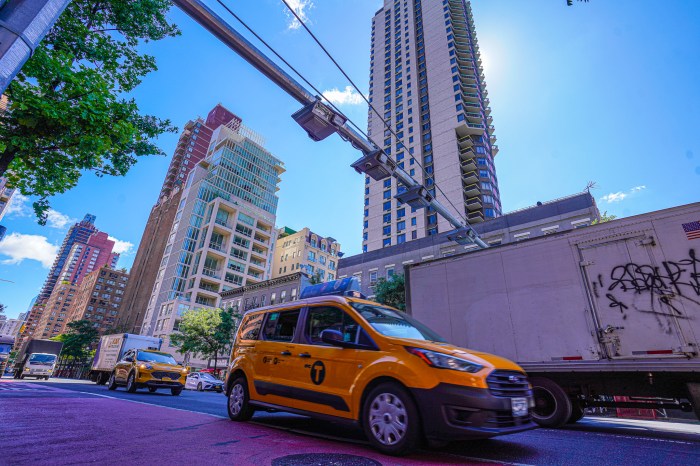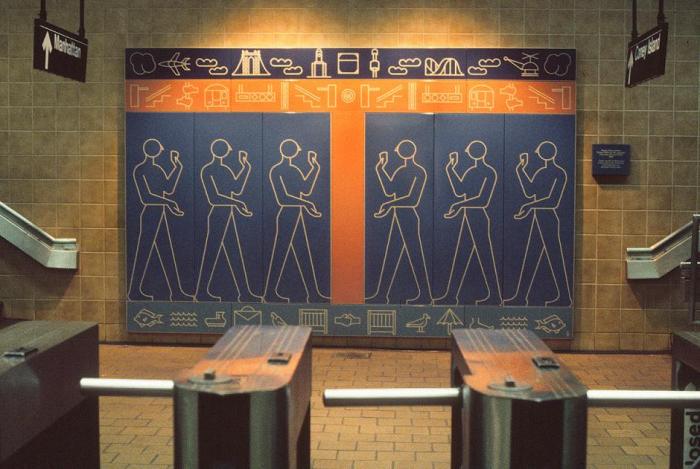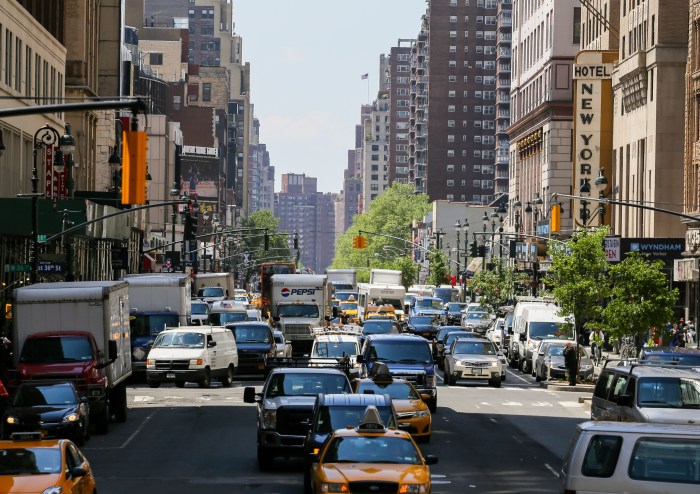They’ve killed mega projects before and they’re threatening to do it again.
West Side elected officials and residents summoned failed projects past — the Westway and West Side Stadium — as they rallied on Thursday to halt the Port Authority’s $10 billion bus terminal replacement project.
Citing concerns of transparency and eminent domain, and the destruction of neighborhood character, city, state and federal officials want the authority to cancel its design and deliverability contest for a terminal concept until what they consider to be an adequate amount of public input is reached.
“There’s plenty of expertise on the West Side to stop bad, poorly planned projects,” said Rep. Jerrold Nadler outside Port Authority headquarters at 4 World Trade Center. “The design competition is premature.”
Taking up roughly an entire city block on Eighth Avenue, between 40th and 42nd streets, the current Port Authority Bus Terminal is the largest and busiest in the nation, serving about 225,000 people each weekday. It’s also on the wrong side of 66 years old, much-maligned and ill-equipped to accommodate what the authority anticipates to be a projected peak passenger growth of 35% to 51% through 2040.
The authority is currently awaiting the submission of terminal concepts from five firms involved in its competition to get an idea of how the terminal could be built and where—likely a bit west of the current site, somewhere between Ninth and 11th avenues.
Demonstrators agreed that the current terminal has to be replaced, but primarily take umbrage at where the authority is eyeing to build its replacement. They suggested moving some if not all of the terminal into New Jersey.
In a statement, First Deputy Mayor Anthony Shorris also requested the competition to be terminated so that the authority could “begin a comprehensive public engagement and planning process that considers all possible options for a new terminal and views the project in an appropriate regional context.”
Port Authority Chairman John Degnan said that the bi-state agency has already agreed to delay the August competition submission deadline by a month, to allow finalists to meet and discuss the project with Manhattan’s Community Board 4. He thought protesters’ claims were overblown for what he considers an “early step” in the process.
“We’re not going to defer the design and deliverability [competition],” Degnan said. “Its results will provide the basis upon which the dialogue that was requested today takes place. It’s not designed to come up with a definitive concept that will be implemented exactly as recommended.”





























